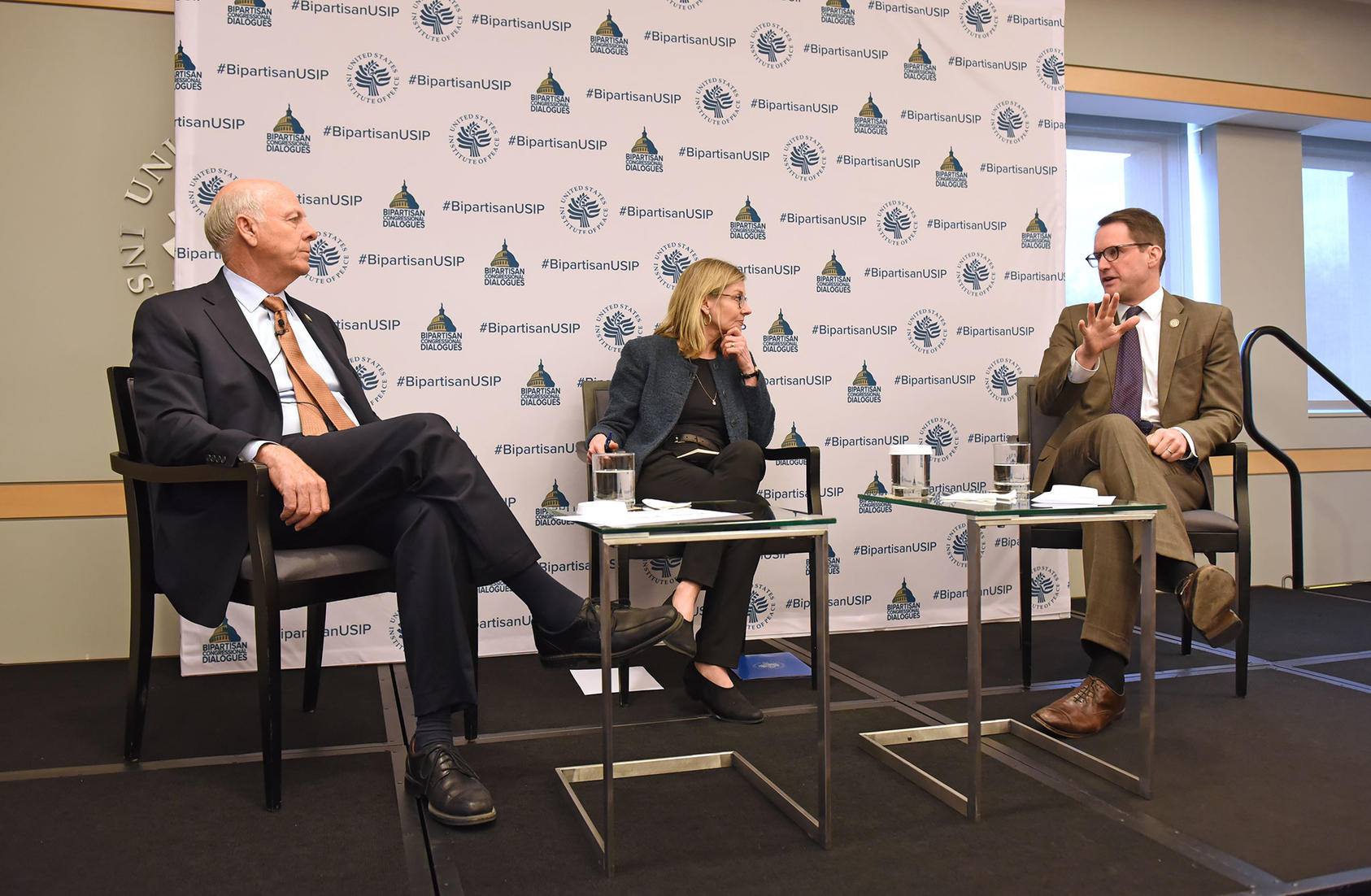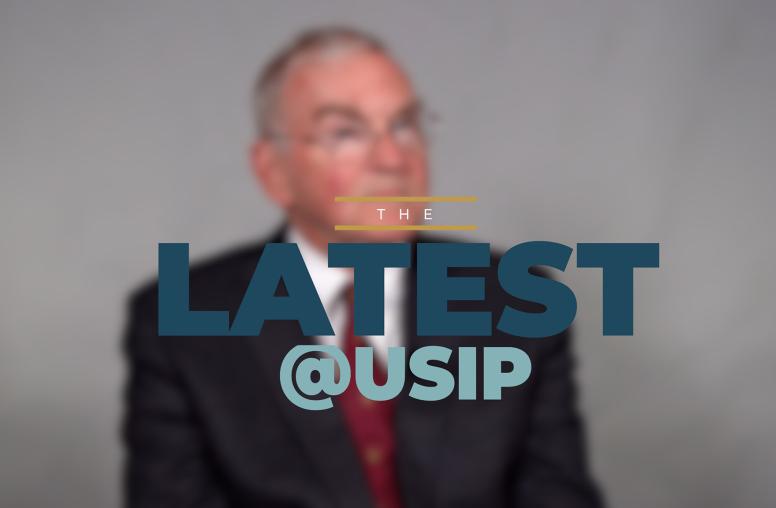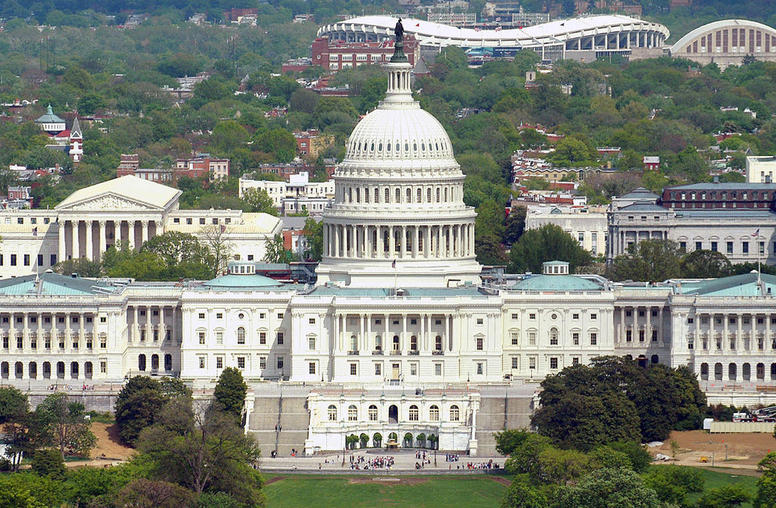Evolving Cybersecurity Threats Require Bipartisan Approach
Bipartisan Congressional Dialogue Confronts Threats Posed by Illicit Financing
We live in an age of immense technological innovation and disruption. While these technologies make our lives easier, criminal groups and terrorist networks have the tools to exploit them, as policymakers struggle to keep up with rapid pace of change. Terrorist groups like the Islamic State and rogue regimes like North Korea employ these technologies to illicitly finance their operations, often using cryptocurrencies in order to evade detection. Despite the partisan rancor in Washington, Republican and Democrat members of Congress are coming together to counter illicit financing and wrestle with these emerging policy challenges.

“Innovation in financial services revolutionizes and simplifies our lives. However, bad actors around the globe exploit the global financial system and modernized technologies for criminal gain. From social media to cryptocurrencies, hackers can break into networks and steal sensitive information for their own capital advantage,” said Congressman Steve Pearce (R-NM), the chairman of the House Financial Services Subcommittee on Terrorism and Illicit Finance.
Rep. Pearce and Congressman Jim Himes (D-CT) discussed their work on the Subcommittee as part of the U.S. Institute of Peace’s Bipartisan Congressional Dialogue—a series of discussions to explore U.S. legislators’ common ground on foreign policy problems and to advance solutions.
No Room for Partisanship Amid an Ever-Changing Problem
For lawmakers in Washington, the fast pace of change in the cyber arena requires constant vigilance and there is agreement that this issue supersedes partisan concerns, as all Americans utilize these technologies and are vulnerable to exploitation. “There’s a lot of work to be done and opening the dialogue like we have done today is definitely a step in the right direction,” Himes said. “There is no room for partisanship on this issue,” added Pearce.
There is a critical need for political leaders to be educated on cybersecurity and to ensure that regulatory agencies are facing the challenges of the 21st century. Cyberthreats move much quicker than lawmakers and regulating agencies can. Indeed, cyberattacks occur around the world every day and hacking financial systems is still a low-risk, high-reward method of illicit financing.
“Representatives Pearce and Himes are leading Congress in combatting the illicit funding of terrorism that perpetuates violent conflict and undermines American interests. They are leaders on the frontier of technology and national security issues where bipartisanship is essential,” noted USIP President Nancy Lindborg.
The 2018 National Security Strategy recognizes the urgency of this issue, and says the United States will “use sophisticated investigative tools to disrupt the ability of criminals to use online marketplaces, cryptocurrencies, and other tools for illicit activities.”
Nation States Must Step Up
It’s not just groups like the Islamic State or hacker collectives that illicitly finance their operations by exploiting vulnerable technologies. States like Russia and Iran also look to illicit financing to skirt sanctions and manipulate the international financial system. “All of these problems get a lot easier if nation states act responsibly,” Himes said.
Ultimately, no country wants to see its electrical grid or water system hacked or tampered with and this should lead to common ground in the international community. “We need to focus on creating the cyber equivalent of the Geneva Conventions,” Himes asserted.
Cryptocurrencies present their own problems, as they help criminals evade taxation and are difficult to track and monitor. “Technologies such as cryptocurrencies offer anonymity and are borderless, making them targets for exploitation by malicious actors for illicit activities ranging from terrorist financing, money laundering and evasion of sanctions,” Himes said.
While issues surrounding cybersecurity and threats are often borderless, the nation state remains the organizing principle of the international order. Cooperation among the international community, therefore, is the most effective and comprehensive way to address illicit financing and other cyberthreats.
What Can be Done?
Both congressmen said the United States must maintain its role as the leader of a functioning international system and work closely with allies to develop solutions. The United States is still not at the cutting edge of cybersecurity compared to other countries, said Pearce, and must work with countries, like Israel and Australia, that have advanced experience in addressing cyberthreats.
Importantly, a set of norms must be agreed upon and codified, particularly when it comes to issues with little room for disagreement—all states, for example, can agree that they do not want their hospitals to be hacked. “We should take care of the easy things first,” Pearce said, coming to international agreements on points of convergence.
The United States can also arm the financial centers of the world to regulate what is immediately possible. “The U.S. should be a leader in developing resilient and proactive cybersecurity strategies,” Pearce said.
USIP’s Bipartisan Congressional Dialogue will continue to bring together leaders from both political parties to address urgent national security and foreign policy challenges.




